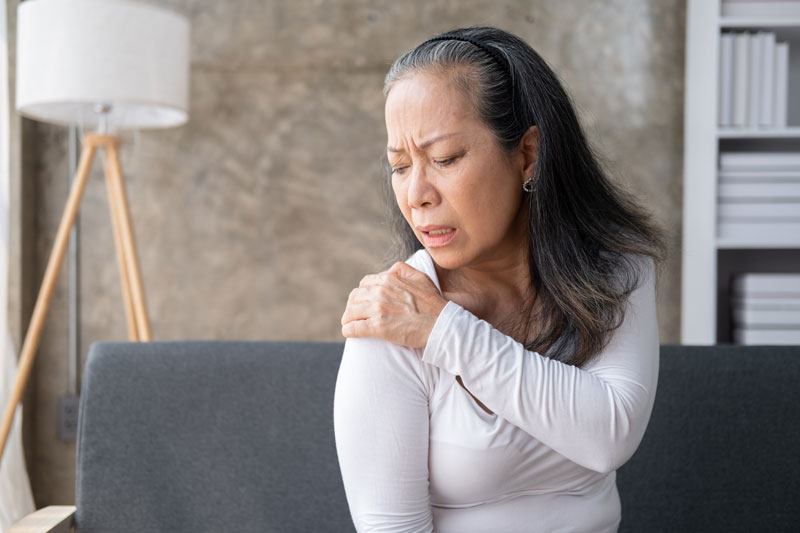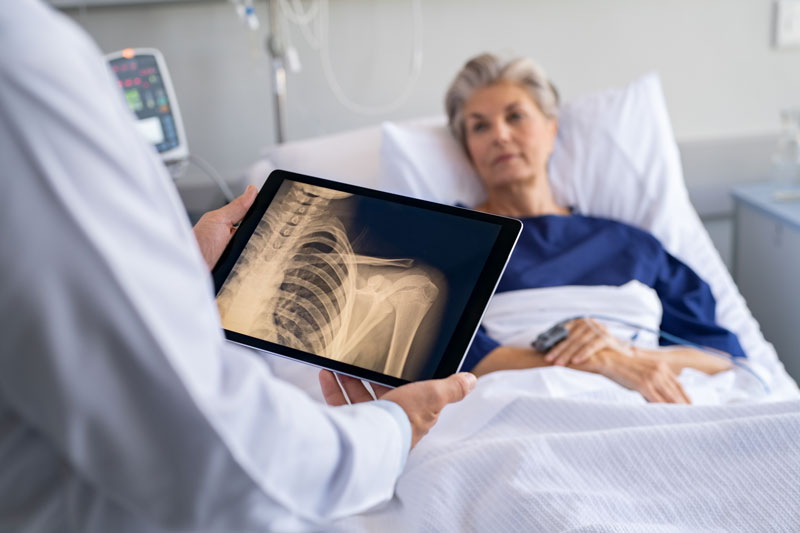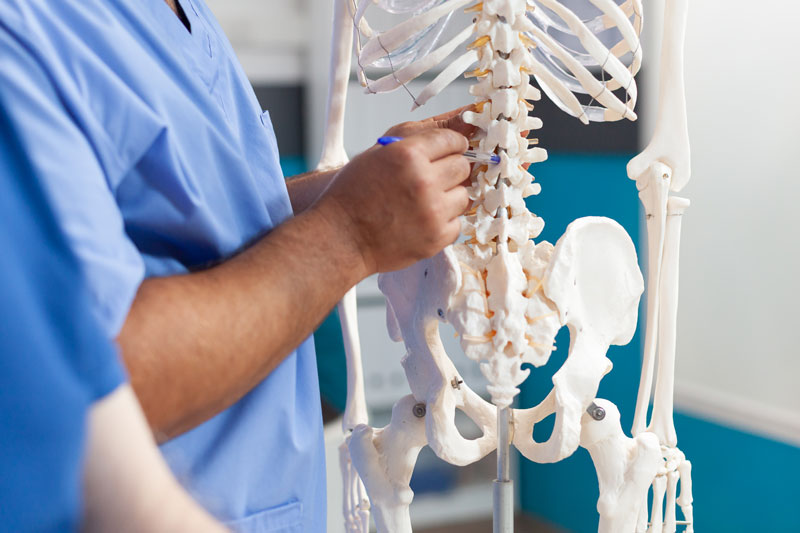What is Osteoporosis?
Osteoporosis is a medical condition characterized by a loss of bone density and strength, which can lead to an increased risk of fractures (broken bones). It occurs when the body loses too much bone or makes too little bone, or both.
While osteoporosis can affect both men and women, it is more common in women, particularly those who are postmenopausal. It is also more common in older adults, as bone density naturally decreases with age.

What Causes Osteoporosis?
Osteoporosis can be caused by a variety of factors, including:
- Aging: As people age, bones naturally become less dense and weaker.
- Genetics: Osteoporosis can run in families, indicating that there may be a genetic component to the disease.
- Hormonal changes: A decrease in estrogen levels in women after menopause can lead to a loss of bone density. Low levels of testosterone in men can also contribute to osteoporosis.
- Low calcium and vitamin D intake: A diet low in calcium and vitamin D can contribute to weaker bones.
- Lack of physical activity: Bones need regular physical activity to stay healthy and strong. People who are inactive have a higher risk of developing osteoporosis.
- Certain medications: Long-term use of corticosteroids and some other medications can increase the risk of osteoporosis.
- Medical conditions: Certain medical conditions such as hyperthyroidism, inflammatory bowel disease, and rheumatoid arthritis can increase the risk of osteoporosis.
- Lifestyle factors: Smoking and excessive alcohol consumption can also increase the risk of osteoporosis.

Symptoms of Osteoporosis
Osteoporosis is often called a “silent disease” because it typically does not cause any symptoms until a bone is broken. Fractures related to osteoporosis most commonly occur in the hip, spine, and wrist. They can be debilitating and severely impact a person’s quality of life.
Some people with osteoporosis may experience:
- Back pain, caused by a fracture or collapse of vertebrae in the spine.
- Loss of height over time due to compression fractures in the spine.
- A stooped posture, also known as a “dowager’s hump,” caused by fractures in the spine.
- Bone fractures, especially in the hip, wrist, or spine, which can occur with minimal trauma or sometimes even with no apparent cause.
- Weak grip strength or difficulty in lifting or carrying objects due to weakened bones.
It’s important to note that osteoporosis often goes undiagnosed until a bone is fractured, which is why early detection and treatment are essential. If you’re at risk for osteoporosis, or if you’re experiencing any of these symptoms, you should talk to your doctor.
Treatment Options for Osteoporosis
Treatment options for osteoporosis may include:
- Lifestyle changes: Eating a diet rich in calcium and vitamin D, weight-bearing exercise, quitting smoking, and limiting alcohol intake can help improve bone health.
- Fall prevention measures: Reducing the risk of falls is important for preventing fractures in people with osteoporosis. This may involve modifying the home environment, wearing appropriate footwear, and using assistive devices like canes or walkers.
- Calcium and vitamin D supplements: If dietary sources of calcium and vitamin D are not sufficient, supplements may be recommended to help support bone health.
- Medications: There are several medications available that can help prevent bone loss, increase bone density, and reduce the risk of fractures. These include bone-building medications such as Forteo or Tymlos, bone-stabilizing medications called bisphosphonates, and other medications as well.
It’s important to work with your doctor to develop a treatment plan that’s tailored to your specific needs and medical history. With proper treatment and management, it’s possible to slow or even reverse the progression of osteoporosis and reduce the risk of fractures.
Frequently Asked Questions about Osteoporosis
Is osteoporosis common?
Osteoporosis affects almost 20% (1 in 5) of women aged 50 and over.
How is osteoporosis diagnosed?
A bone mineral density test called a DXA scan uses very low dose X-ray to check measures of bone quality and strength.
What is the recommended amount of calcium for bone health?
Most adults over age 50 need a total of around 1,200 mg of calcium daily. The best way to get calcium is through the diet. Calcium supplements may be recommended if your diet is not providing enough calcium.
What is the recommended amount of vitamin D for bone health?
The National Osteoporosis Foundation recommends 800 to 1,000 IU of vitamin D3 per day. Vitamin D requirements can vary significantly and are best guided by blood tests.





